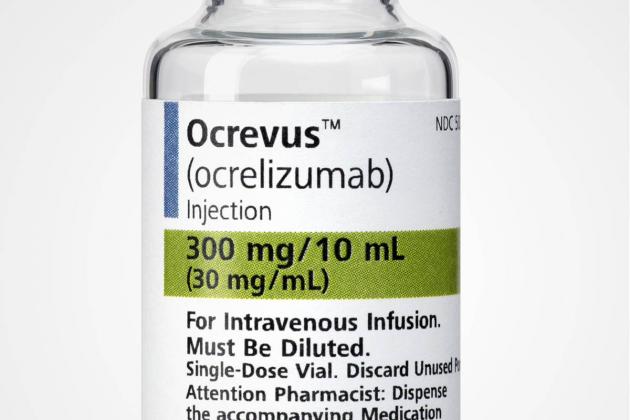The U.S. Food and Drug Administration Tuesday approved Ocrevus (ocrelizumab) to treat adult patients with relapsing forms of multiple sclerosis (MS) and primary progressive multiple sclerosis (PPMS).
Ocrevus is the first drug approved by the FDA for PPMS. It is a blood infusion given by a health care professional. The FDA granted approval of Ocrevus to Genentech, Inc., a wholly owned subsidiary of Roche.

MS is a chronic, inflammatory, autoimmune disease of the central nervous system that disorders communication between the brain and other parts of the body. It’s the most common causes of neurological disability in young adults and occurs more frequently in women than men.
Typical cases with people with MS are that episodes of relapses are followed by remissions, and over time, recovery may be incomplete, leading to a progressive decline in function and increased disability. Usually, people experience the first symptoms of MS between the age of 20 and 40.
“Multiple sclerosis can have a profound impact on a person’s life,” said Billy Dunn, a director in the FDA’s Center for Drug Evaluation and Research. “This therapy not only provides another treatment option for those with relapsing MS but for the first time provides an approved therapy for those with primary progressive MS.”
PPMS are characterized by the steadily worsening function from its symptoms that are often without early relapses or remissions. The U.S. Centers for Disease Control and Prevention has estimated that approximately 15 percent of patients with MS have PPMS.
The efficacy of Ocrevus for the treatment of relapsing forms of MS was shown in two clinical trials in 1,656 participants treated for 96 weeks. Both studies compared Ocrevus with another MS drug, Rebif (interferon beta-1a). In both studies, it showed the patients receiving Ocrevus had reduced relapse rates and reduced worsening of disability compared to Rebif.
In a study of PPMS in 732 participants treated for at least 120 weeks, those receiving Ocrevus showed a longer time to the worsening of disability compared to placebo.
Ocrevus can cause infusion-related reactions, which can be severe. These reactions include itchy skin, rash, hives, skin redness, flushing, low blood pressure, fever, tiredness, dizziness, headache, throat irritation, shortness of breath, swelling of the throat, nausea and fast heartbeat.
Ocrevus should not be used for patients who have hepatitis B infection or a history of life-threatening infusion-related reactions to the drug.
Additionally, Ocrevus may increase the risk of malignancies, particularly breast cancer. Ocrevus treatment should be delayed for patients with active infections. Vaccination with live or live attenuated vaccines is not recommended in patients receiving Ocrevus.
For infusion-related reactions, the most common side effect of Ocrevus seen in the clinical trials for relapsing forms of MS was upper respiratory tract infection. The most common side effects in the study of PPMS were upper respiratory tract infection, skin infection, and lower respiratory tract infection.

